Unveiling the Potential Impact of Crypto NFTs
Blur: NFT | Blur: NFT login | Blur: NFT connect | WalletConnect | Traders | What Is Blur Crypto
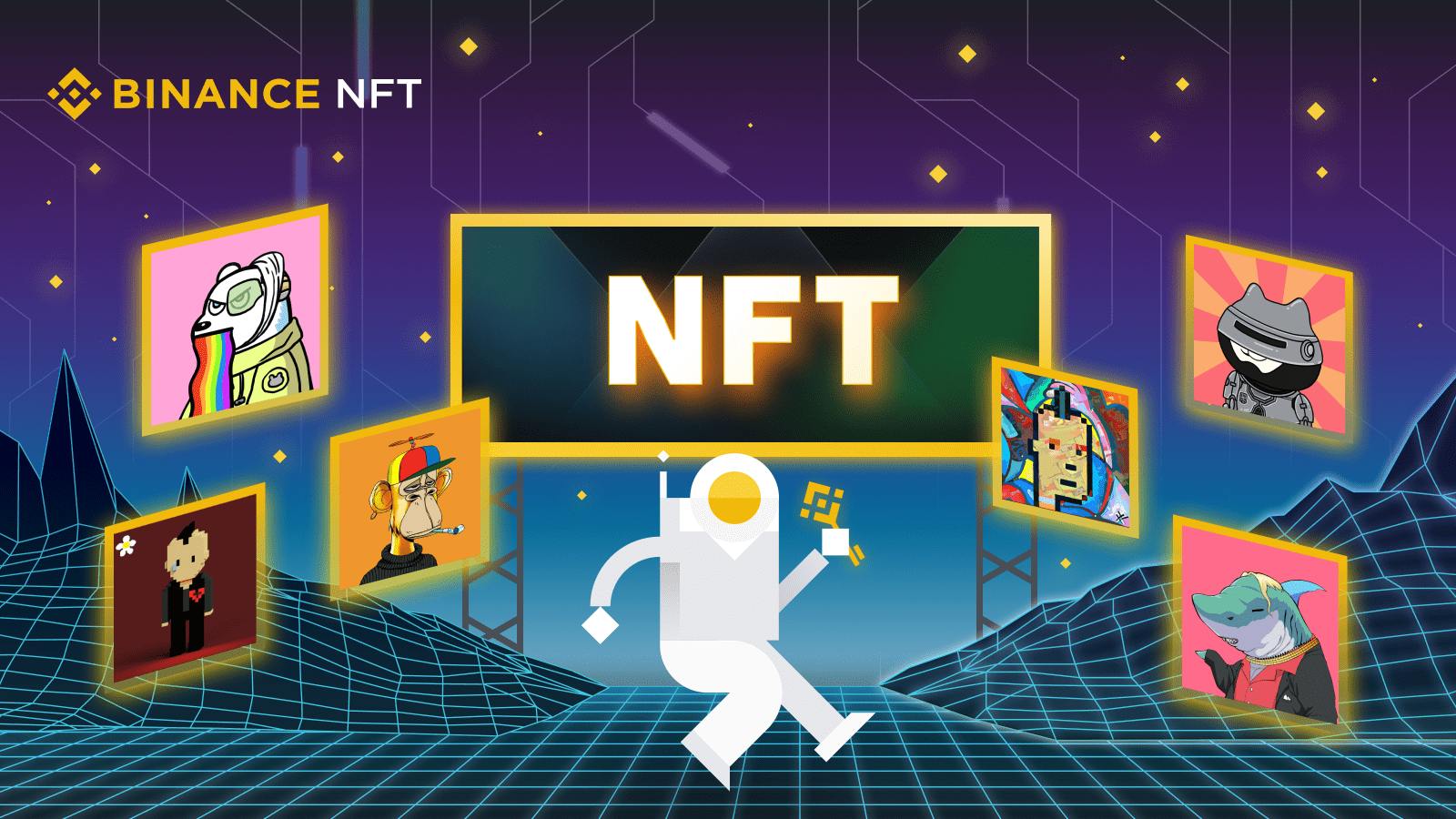
Blur: NFT | Blur: NFT login | Blur: NFT connect | WalletConnect | Traders | What Is Blur Crypto
Crypto NFTs (Non-Fungible Tokens) have emerged as a revolutionary technology in the world of digital assets. These unique tokens, built on blockchain technology, have the potential to disrupt the global online economy in ways we have never seen before. In this article, we will delve deep into the world of crypto NFTs and explore their potential impact on various industries and the overall economy.
One of the key characteristics of crypto NFTs is their individuality and scarcity. Unlike cryptocurrencies such as Bitcoin or Ethereum, which are fungible and can be exchanged for one another, NFTs are unique and cannot be replicated. Each NFT represents a specific digital asset, whether it's a piece of art, a video clip, a music file, or even virtual real estate. This uniqueness and scarcity make NFTs highly desirable and valuable in the digital realm.
The emergence of crypto NFTs has created a new paradigm for ownership and value in the online world. With NFTs, creators can now tokenize their digital creations and sell them directly to buyers, without the need for intermediaries such as galleries or auction houses. This allows artists, musicians, and content creators to have full control over their work and monetize it in a way that was not possible before. Additionally, NFTs enable collectors and investors to acquire and trade unique digital assets, creating a vibrant marketplace for digital art and collectibles.
The potential impact of crypto NFTs on the global online economy is immense. Not only do they provide new opportunities for artists and creators, but they also have the potential to reshape entire industries. For example, the gaming industry can benefit greatly from NFTs by allowing players to own and trade in-game items and characters. Virtual real estate marketplaces can also thrive, where users can buy and sell virtual land or properties. Moreover, industries such as fashion, sports memorabilia, and even virtual events can leverage NFTs to create new revenue streams and engagement models.
However, with great potential comes great challenges. The current state of the crypto NFT market is still nascent, and issues such as scalability, energy consumption, and regulatory frameworks need to be addressed for widespread adoption. Nevertheless, the potential of crypto NFTs to revolutionize the global online economy cannot be ignored. As more artists, creators, and entrepreneurs embrace this technology, we can expect to see a fundamental shift in the way we interact, own, and value digital assets.
The Potential Impact of Crypto NFTs on the Global Online Economy: A Detailed Exploration
Crypto NFTs, also known as non-fungible tokens, have gained significant attention in recent years. These unique digital assets are revolutionizing the way we think about ownership and value, particularly in the online economy. In this detailed exploration, we will delve into the potential impact of Crypto NFTs on the global online economy.
The Rise of Crypto NFTs
With the rise of blockchain technology, Crypto NFTs have emerged as a new and exciting way to tokenize and trade digital assets. Unlike cryptocurrencies such as Bitcoin or Ethereum, NFTs are indivisible and unique, representing ownership or proof of authenticity for a specific piece of digital content, whether it be artwork, music, collectibles, or virtual real estate.
The ability to verify ownership and provenance of digital assets through blockchain technology has opened up a world of opportunities for creators, artists, and collectors. It allows for direct peer-to-peer transactions without the need for intermediaries, such as galleries, auction houses, or online marketplaces.
The Impact on the Global Online Economy
The potential impact of Crypto NFTs on the global online economy is vast and diverse. Here are some key areas where NFTs are already making waves:
Art and Collectibles: NFTs have disrupted the traditional art market by providing artists with new revenue streams and enabling them to sell their digital creations directly to collectors. This has resulted in a democratization of the art world, allowing artists of all backgrounds to showcase and monetize their work.
Virtual Real Estate and Gaming: NFTs have also found their way into virtual worlds and gaming ecosystems. Players can now buy, sell, and trade virtual land, in-game items, and avatars using NFTs. This not only enhances the gaming experience but also provides valuable opportunities for economic growth within these virtual economies.
Intellectual Property and Licensing: NFTs have the potential to revolutionize the management and licensing of intellectual property. Creators can tokenize their work, allowing them to retain control and earn royalties whenever their digital assets are sold or used.
It is important to note that while Crypto NFTs offer exciting possibilities, there are also challenges and considerations. These include issues of copyright infringement, environmental concerns surrounding the energy consumption of blockchain networks, and the need for education and understanding of the technology among both creators and collectors.
In conclusion, Crypto NFTs have the potential to transform the global online economy by redefining the concept of ownership and value in the digital realm. They empower creators, artists, and collectors, while also presenting new opportunities for economic growth and innovation. As the technology continues to evolve and gain mainstream adoption, it is crucial to explore the potential impact, benefits, and challenges of Crypto NFTs on the global online economy.
For more information about Crypto NFTs and their impact, visit Blur.io에 연결하기.
Understanding Crypto NFTs
Crypto NFTs (Non-Fungible Tokens) have emerged as a fascinating and innovative aspect of the crypto world. Unlike cryptocurrencies such as Bitcoin or Ethereum, which are fungible and can be exchanged on a one-to-one basis, NFTs are unique and cannot be exchanged on a like-for-like basis. Each NFT represents a distinct piece of digital content or ownership of a particular asset.
Essentially, an NFT is a form of digital certificate of authenticity that verifies ownership and provenance of a digital asset, whether it be a piece of artwork, a music album, a virtual land, or even a tweet. This uniqueness and scarcity attribute of NFTs make them highly collectible and valuable in the eyes of the crypto community and beyond.
One key feature of NFTs is that they are built on blockchain technology, providing a decentralized and transparent ledger for recording and verifying ownership. The use of blockchain ensures the immutability, security, and traceability of NFT transactions, making them highly secure and resistant to fraud or tampering.
Another important aspect of NFTs is that they can be programmed with smart contracts, allowing creators to earn royalties every time their NFT is sold or traded. This feature provides a significant incentive for artists, musicians, and creators to embrace NFTs as a means to monetize their digital content in an increasingly digital economy.
The impact of NFTs on the global online economy cannot be understated. With NFT marketplaces booming and digital collectibles selling for millions of dollars, NFTs have opened up a whole new world of possibilities for creators, investors, and collectors alike.
However, the rise of NFTs has also brought about concerns regarding environmental impact, as the energy consumption of blockchain networks supporting NFT transactions is a subject of debate. Efforts are being made to explore more sustainable alternatives and reduce the carbon footprint associated with NFTs.
In conclusion, Crypto NFTs represent a significant technological advancement in the digital world. Their unique attributes and the ability to tokenize and monetize digital assets have revolutionized the global online economy. As NFTs continue to gain popularity and evolve, it will be interesting to see how they shape the future of digital art, collectibles, and even ownership of virtual assets.
Exploring the Global Online Economy

The global online economy has experienced tremendous growth and transformation in recent years. With the widespread adoption of the internet and the rise of e-commerce platforms, conducting business online has become the norm for many organizations and individuals.
One of the key factors driving the growth of the global online economy is the increasing digitization of products and services. The internet has made it easier for businesses to reach a global customer base and for consumers to access a wide range of products and services without geographical limitations.
Another important aspect of the global online economy is the emergence of new business models and revenue streams. The rise of subscription-based services, digital marketplaces, and online advertising has opened up countless opportunities for entrepreneurs and companies to generate income in innovative ways.
Furthermore, the global online economy has also seen the integration of emerging technologies such as blockchain and cryptocurrencies. These technologies have the potential to revolutionize various aspects of the economy, including finance, supply chain management, and intellectual property rights.
One specific area within the global online economy that is gaining increasing attention is the use of crypto NFTs (non-fungible tokens). These unique digital assets, built on blockchain technology, can represent ownership or proof of authenticity for various types of digital and physical goods.
Crypto NFTs have the potential to greatly impact the global online economy by enabling new revenue streams for content creators, facilitating the trade of digital assets, and introducing new monetization models for online platforms. Additionally, these tokens can provide a new level of transparency and trust, as ownership and transaction history can be easily verified on a blockchain.
As the global online economy continues to evolve, it is important for businesses and individuals to stay informed and adapt to the changing landscape. The potential impact of crypto NFTs is still being explored, but their potential to disrupt and transform various industries is undeniable.
In conclusion, the global online economy is a dynamic and rapidly evolving landscape. The integration of emerging technologies and the rise of new business models provide exciting opportunities for growth and innovation. With the advent of crypto NFTs, the potential impact on the global online economy is vast, and it will be fascinating to see how these digital assets shape the future of online commerce.
The Rise of Crypto NFTs
Crypto NFTs, or Non-Fungible Tokens, have emerged as a groundbreaking innovation in the world of digital assets. These unique tokens have the potential to revolutionize the way we buy, sell, and own digital content, creating new opportunities for creators, collectors, and investors alike.
With the advent of blockchain technology, crypto NFTs provide a new level of security and provenance for digital assets. Each NFT is digitally signed and recorded on a blockchain, ensuring its authenticity and ownership. This decentralized nature eliminates the need for intermediaries and guarantees the transparency of transactions.
One of the key factors driving the rise of crypto NFTs is their ability to represent ownership of digital artwork, music, videos, and other forms of digital media. Through NFTs, creators can tokenize their work, allowing them to sell it directly to collectors without the need for traditional distributors or galleries. This opens up a whole new world of opportunities for artists, who can now earn a fair and transparent income from their creations.
Furthermore, crypto NFTs enable collectors to truly own and trade digital assets. Unlike traditional digital files, which can be easily copied and shared, NFTs provide a way to authenticate and prove ownership of a unique digital item. This scarcity adds value to the asset and opens up a secondary market for buying, selling, and trading NFTs.
The potential impact of crypto NFTs on the global online economy cannot be overstated. As more and more industries are disrupted by digital transformation, NFTs offer a new way to monetize and distribute digital content. From virtual real estate to virtual fashion, the possibilities are endless.
Adopting crypto NFTs also has the potential to democratize the creative industry, giving artists, musicians, and creators more control and independence over their work. By bypassing traditional gatekeepers, artists can reach a global audience and be compensated fairly for their contributions.
As the popularity of crypto NFTs continues to grow, platforms like Blur.io에 연결하기 are emerging to provide a marketplace and community for NFT enthusiasts. These platforms allow creators to mint and sell their NFTs, while collectors can discover and acquire unique digital assets.
In conclusion, the rise of crypto NFTs represents a new era for the global online economy. These tokens have the potential to transform the way we interact with digital assets, empowering creators and enabling a new level of ownership and value exchange. The future of the online economy is undeniably tied to the rise of crypto NFTs, and we are only beginning to scratch the surface of their potential.
NFTs as Digital Assets
NFTs, or non-fungible tokens, are a new type of digital asset that have gained significant attention and popularity in recent years. They are unique, indivisible tokens that exist on a blockchain, typically using the Ethereum network. NFTs can represent ownership or proof of authenticity for various digital assets, such as artworks, collectibles, virtual real estate, and more.
Unlike cryptocurrencies like Bitcoin or Ethereum, which are fungible and can be exchanged on a one-to-one basis, NFTs are unique and cannot be exchanged on a like-for-like basis. Each NFT is distinguished by its own unique metadata, which includes information about the asset it represents.
One of the key benefits of NFTs is their ability to prove ownership and authenticity in the digital world. With traditional digital assets, such as images or videos, it can be difficult to establish the original creator or prove ownership. NFTs solve this problem by providing a transparent and immutable record of ownership on the blockchain, making it easy to verify the authenticity of a digital asset.
NFTs also offer new opportunities for creators and artists to monetize their digital work. By minting their creations as NFTs, artists can sell them directly to collectors on various NFT marketplaces. This enables artists to retain greater control over their work and earn royalties whenever their NFTs are resold in the future.
Furthermore, NFTs have the potential to revolutionize the gaming industry. Virtual assets, such as in-game items or virtual real estate, can be tokenized as NFTs, allowing players to buy, sell, and trade them on blockchain-powered marketplaces. This opens up a new world of possibilities for gamers, as they can truly own and control their virtual possessions.
However, as with any emerging technology, there are also challenges and concerns related to NFTs. The environmental impact of NFTs, specifically the energy consumption associated with blockchain transactions, has raised concerns about sustainability. Additionally, there have been
Collectibility and Scarcity

The concept of collectibility and scarcity plays a significant role in the world of crypto NFTs. Unlike traditional digital files, NFTs are unique and indivisible tokens that can be owned and traded on various blockchain platforms.
The scarcity of NFTs comes from the limited edition nature of each token. Artists and creators can choose to release only a certain number of NFTs for a specific artwork, establishing its scarcity in the marketplace. This limited supply increases the desirability and collectibility of NFTs, as owning a unique digital asset can hold significant value.
NFT collectors are drawn to the idea of owning exclusive, one-of-a-kind pieces of digital art, collectibles, or experiences. The scarcity of these NFTs contributes to the excitement and competition among collectors, as they strive to acquire the rarest and most sought-after tokens.
The concept of scarcity also extends to the secondary market for NFTs. As collectors trade and sell their NFTs, those with limited supply and high demand can see their value increase significantly. This scarcity-driven value appreciation creates an incentive for collectors to enter the market and invest in NFTs.
Furthermore, the technology behind blockchain ensures the authenticity and provenance of each NFT, eliminating the possibility of counterfeit or duplicate tokens. This feature adds another layer of scarcity and collectibility to NFTs, as their uniqueness and verifiability are ensured.
In conclusion, the combination of limited supply, exclusivity, and verifiability contributes to the collectibility and scarcity of NFTs. As this emerging market continues to grow, more artists, collectors, and enthusiasts are entering the space to explore its potential and contribute to the global online economy.
Blockchain Technology and NFTs
Blockchain technology has emerged as a revolutionary innovation that has the potential to transform various industries, including the global online economy. At the heart of this technology are cryptocurrencies and Non-Fungible Tokens (NFTs), both of which are gaining significant attention and adoption worldwide.
Blockchain, often referred to as a decentralized ledger, is a digital technology that enables secure and transparent transactions. It ensures the integrity of data and eliminates the need for intermediaries, such as banks or governments, to validate and authorize transactions. This decentralized nature of blockchain technology brings several advantages, including increased security, enhanced privacy, and lower transaction costs.
NFTs, on the other hand, are unique cryptographic tokens that are created and stored on the blockchain. Unlike cryptocurrencies such as Bitcoin or Ethereum, which are fungible and can be exchanged for one another, NFTs are unique and cannot be replaced or interchanged. Each NFT represents a specific digital asset, such as artwork, collectibles, or virtual real estate, and is associated with its own distinct digital signature.
The emergence of NFTs has created new opportunities for artists, creators, and entrepreneurs in the global online economy. With blockchain technology and smart contracts, NFTs enable artists to showcase and sell their digital works directly to collectors, eliminating the need for intermediaries. This direct peer-to-peer interaction also enables artists to retain control over their intellectual property rights and receive fair compensation for their creations.
Moreover, NFTs provide a new way for collectors and fans to engage with digital content. By owning an NFT, individuals gain unique ownership of digital assets, which can be easily verified and proven authentic through the blockchain. This ownership can be transferred or traded, providing a new digital marketplace for buying, selling, and collecting digital art and other unique assets.
However, while the potential impact of NFTs on the global online economy is significant, there are also challenges and risks that need to be addressed. One of the crucial challenges is the environmental impact of blockchain technology, particularly the energy consumption associated with mining cryptocurrencies. As the popularity and adoption of NFTs grow, it is essential to develop sustainable solutions that minimize the carbon footprint of blockchain transactions.
Overall, blockchain technology and NFTs have the potential to revolutionize the global online economy by enabling secure and direct transactions, empowering artists and creators, and providing new opportunities for collectors and fans. However, it is essential to navigate the challenges and risks associated with this technology to ensure its sustainable and responsible implementation.
NFTs and Intellectual Property
In the world of NFTs, intellectual property (IP) rights are a significant concern. NFTs represent the ownership of digital assets, but the underlying content that they represent often falls under various forms of copyright, trademarks, and other intellectual property laws.
Creators of NFTs need to be careful not to infringe upon the rights of original creators and owners of the underlying content. While NFT ownership may be decentralized and recorded on a blockchain, it does not automatically grant the right to reproduce, distribute, or publicly display the content.
However, NFTs can provide artists and content creators with new opportunities to protect and monetize their intellectual property. By minting NFTs of their work, creators can establish ownership and provenance, making it easier to enforce their rights. This can potentially disrupt traditional copyright models and give more power to creators.
The Challenges of Copyright Infringement
The digital nature of NFTs presents challenges when it comes to copyright enforcement. Once a piece of art, music, or any other digital asset is tokenized into an NFT, it can be easily replicated and shared across the internet. This makes it difficult to prevent unauthorized copying and misuse of the content.
Moreover, NFT marketplaces often lack comprehensive mechanisms for copyright verification and enforcement. This means that unscrupulous individuals can create and sell NFTs that infringe upon the intellectual property rights of others without consequences.
The Role of Smart Contracts and DRM
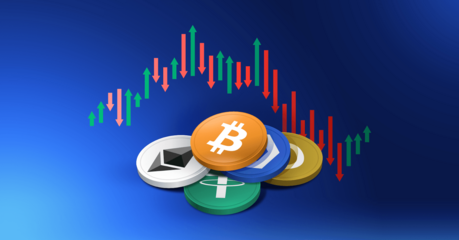
To address these challenges, some NFT platforms and creators are exploring the use of smart contracts and digital rights management (DRM) technologies. Smart contracts allow creators to attach additional terms and conditions to their NFTs, such as royalty agreements or usage restrictions.
DRM can be implemented through encrypted metadata embedded within the NFT, giving creators more control over how their content is used. This can include limiting the number of copies that can be made, imposing restrictions on commercial use, or even allowing content to be leased or rented rather than sold outright.
However, implementing DRM on the blockchain comes with its own set of challenges. Some argue that DRM undermines the decentralized and open nature of blockchain technology. Finding a balance between protecting intellectual property rights and maintaining the principles of blockchain decentralization remains a subject of debate.
In conclusion, NFTs have the potential to revolutionize the way intellectual property is protected and monetized. While there are challenges to overcome, such as copyright infringement and the implementation of DRM, NFTs offer new opportunities for creators to establish ownership, enforce their rights, and benefit from the global online economy in innovative ways. Proper regulation and industry collaboration will be crucial in ensuring a fair and sustainable future for NFTs and intellectual property.
Implications for Artists and Creators
The rise of crypto NFTs has significant implications for artists and creators worldwide. With the ability to tokenize their artwork or creations, they now have an unprecedented opportunity to directly monetize their work, bypassing traditional gatekeepers such as galleries, agents, or streaming platforms.
One of the main advantages of crypto NFTs for artists is the ability to receive royalties every time their work is sold or traded on secondary markets. This ongoing revenue stream can provide a sustainable income source, even long after the initial sale. Additionally, artists can set the terms of their sales, including price, limited editions, and royalties, giving them greater control over their artistic careers.
New Opportunities for Collaboration
Crypto NFTs also open up new avenues for collaboration among artists and creators. By tokenizing their work, artists can easily collaborate with others by creating joint artworks or combining their creations into unique collections. This collaborative approach not only allows for the blending of different artistic styles and perspectives but also enables artists to tap into each other's fan bases and expand their reach to new audiences.
Promoting Transparency and Authenticity
One of the key benefits of using crypto NFTs in the art and creative industries is the heightened level of transparency and authenticity they provide. Each NFT is tied to a specific digital asset and registered on a blockchain, ensuring that it is unique and cannot be duplicated or counterfeit. This feature helps to verify the authenticity of the artwork or creation, giving collectors and buyers peace of mind that they are purchasing an original piece.
Furthermore, the blockchain's immutable nature allows for the transparent tracking of ownership and provenance. This ensures that artists and creators can retain control over their work, even as it changes hands or goes through multiple transactions. The ability to trace the ownership history of an artwork through the blockchain adds an extra layer of trust and security to the art market.
In conclusion, crypto NFTs offer numerous implications for artists and creators, empowering them with new monetization opportunities, collaborative prospects, and enhanced transparency. As the popularity of crypto NFTs continues to grow, artists and creators must adapt and explore these emerging technologies to fully harness their potential and navigate the evolving global online economy.
Challenges and Concerns
The rise of crypto NFTs in the global online economy brings along a set of challenges and concerns that need to be addressed for the widespread adoption and sustainability of this technology. Some of the major challenges and concerns are:
Environmental Impact: The increasing popularity of crypto NFTs has led to a surge in energy consumption, primarily due to the mining process and blockchain transactions. This has raised concerns about the environmental impact of crypto NFTs, particularly their contribution to carbon emissions.
Economic Inequality: The accessibility and affordability of crypto NFTs are major concerns. As the market value of some NFTs reaches astronomical figures, the majority of people may be priced out of participation. This raises questions of economic inequality and the concentration of wealth among a few individuals.
Scams and Fraud: The decentralized nature of crypto NFTs also brings risks of scams and fraud. With the absence of a centralized authority, it becomes challenging to regulate and protect users from fraudulent NFTs, counterfeit artworks, or misleading claims.
Market Volatility: The crypto market is known for its volatility, and the same applies to the crypto NFT market. NFT values can fluctuate drastically within a short period, leading to potential financial losses for investors and creators. This volatility may deter some potential participants from entering the market.
Intellectual Property Rights: The concept of ownership and intellectual property rights in the crypto NFT space is still evolving. Determining the true owner and protecting the rights of creators can be complex, especially with the ease of copying and reproducing digital assets.
Regulatory Frameworks: As crypto NFTs gain more popularity and mainstream attention, there is a growing need for regulatory frameworks to ensure consumer protection, prevent money laundering, and combat illegal activities. Developing such frameworks poses challenges due to the decentralized nature of blockchain technology.
Addressing these challenges and concerns will be crucial for the long-term success and sustainability of the crypto NFT market. Collaboration between industry players, regulators, and stakeholders will play a vital role in overcoming these obstacles and shaping a responsible and inclusive digital asset ecosystem.
Potential Benefits for the Global Online Economy
The rise of crypto NFTs has the potential to revolutionize the global online economy in several ways. Here are some of the key benefits that can be expected:
1. Increased Innovation:
Crypto NFTs allow creators to tokenize and sell their unique digital assets, ranging from artwork to music, collectibles, and more. This opens up new avenues for innovation and creativity, as artists and content creators are empowered to directly monetize their work without relying on traditional intermediaries.
2. Enhanced Transparency:
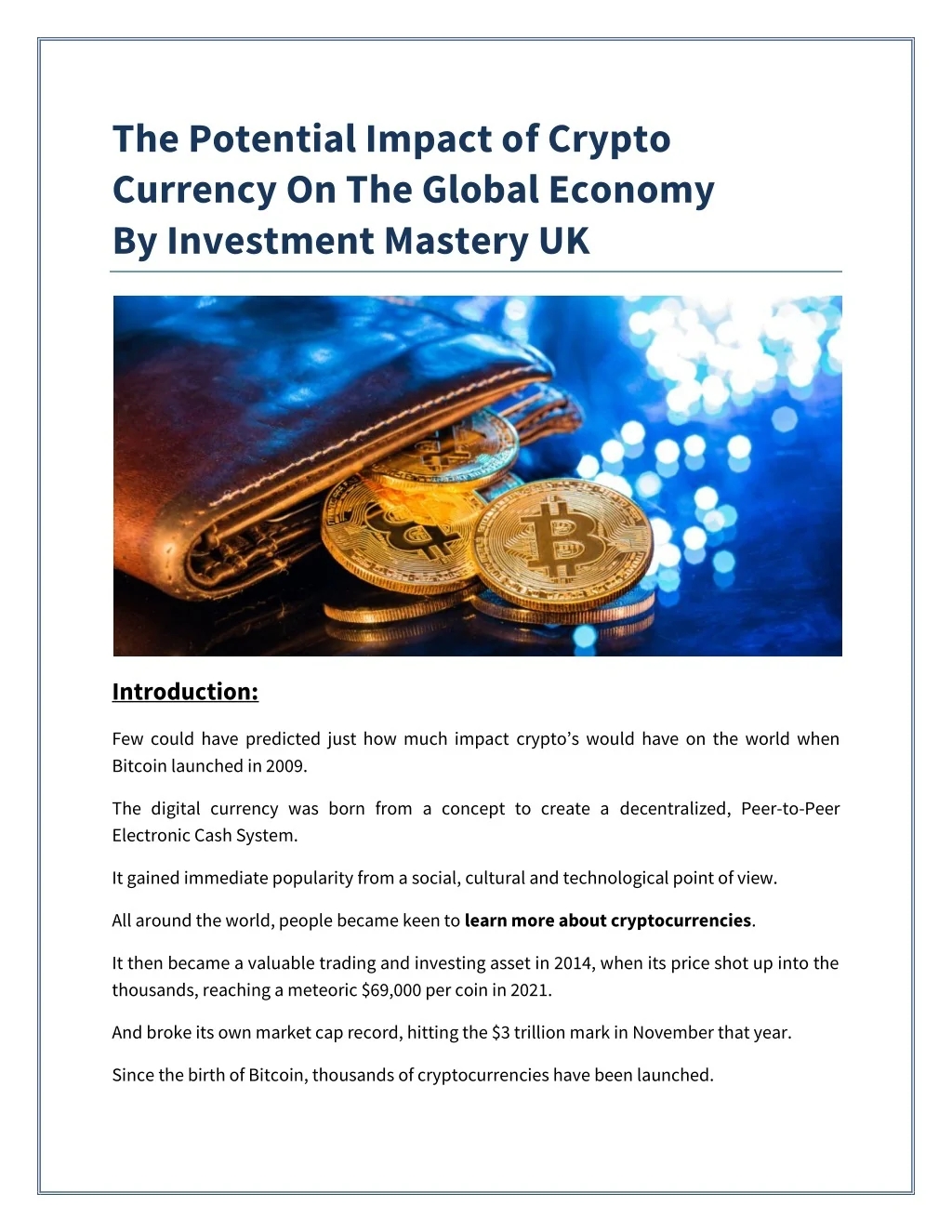
The blockchain technology underlying crypto NFTs provides a transparent and immutable record of ownership and transaction history. This transparency not only helps in establishing provenance for digital assets but also ensures a higher level of trust and accountability in online transactions.
3. Global Accessibility:
Crypto NFTs enable frictionless cross-border transactions, allowing anyone with an internet connection to participate in the global online economy. This opens up new markets and opportunities, especially for creators from developing countries who may have limited access to traditional financial systems.
4. Fair Compensation for Content Creators:

With the advent of crypto NFTs, content creators can receive direct payments for their work, eliminating the need for middlemen who often take a significant share of the revenue. This empowers artists to retain greater control over their intellectual property and ensures fair compensation for their efforts.
5. New Revenue Streams:
The ability to tokenize and sell digital assets as NFTs introduces new revenue streams for individuals and businesses. Beyond traditional sales, creators can also earn royalties whenever their NFTs are resold, providing a continuous source of income even after the initial sale.
Increased innovation
Enhanced transparency
Global accessibility
Fair compensation for content creators
New revenue streams
Overall, crypto NFTs have the potential to unlock tremendous opportunities for the global online economy, empowering creators, fostering innovation, and driving economic growth in the digital age.
The Future of Crypto NFTs and the Global Online Economy
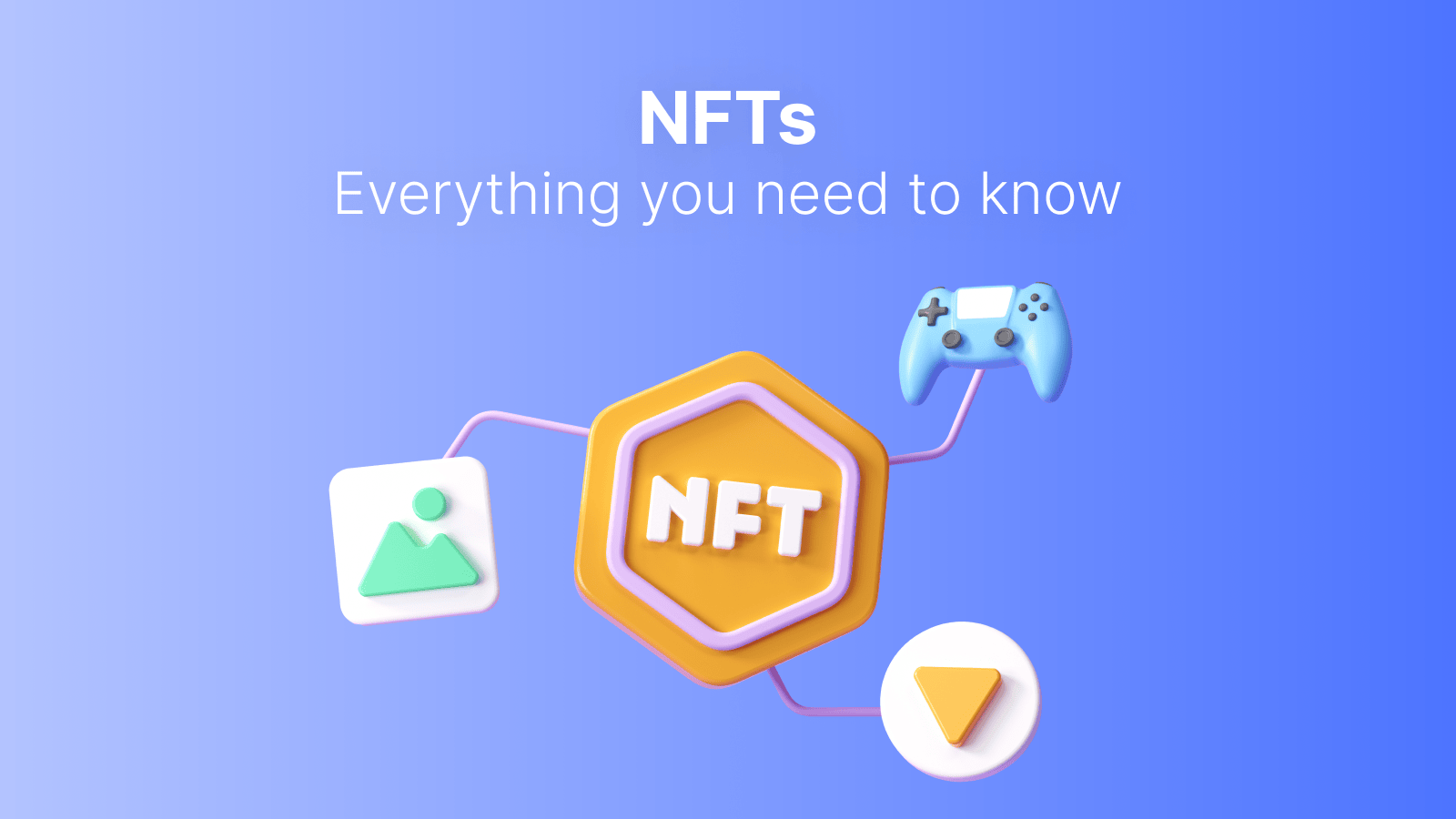
The emergence of crypto NFTs (Non-Fungible Tokens) has sparked a new wave of excitement and innovation in the global online economy. These unique digital assets have the potential to revolutionize various industries, including art, gaming, collectibles, and even real estate. But what does the future hold for crypto NFTs and their impact on the global online economy?
1. Increased Accessibility and Inclusivity

One of the most significant advantages of crypto NFTs is their potential to increase accessibility and inclusivity in the global online economy. Unlike traditional marketplaces and auction houses, which may have high barriers to entry, anyone with an internet connection can participate in buying, selling, and trading NFTs. This opens up new opportunities for artists, creators, and collectors from all corners of the world to showcase their work and engage with a global audience.
Additionally, crypto NFTs have the potential to empower underrepresented artists and creators by providing a decentralized and transparent platform for monetizing their work. This can help break down traditional gatekeeping structures and create a more equitable online economy.
2. Integration with Virtual Reality and Augmented Reality

The future of crypto NFTs goes beyond static digital assets. With the advancement of technologies like virtual reality (VR) and augmented reality (AR), NFTs can become immersive experiences and interactive artworks. Imagine exploring a virtual art gallery and purchasing a limited-edition NFT that allows you to interact with the artwork in a three-dimensional space. This integration of NFTs with VR and AR can revolutionize the way we experience and trade digital assets, blurring the lines between the physical and virtual worlds.
This integration can also extend to other industries such as gaming, where NFTs can represent in-game items and assets. Players can truly own and trade these virtual assets, creating a new economy within the gaming world.
3. Challenges and Opportunities
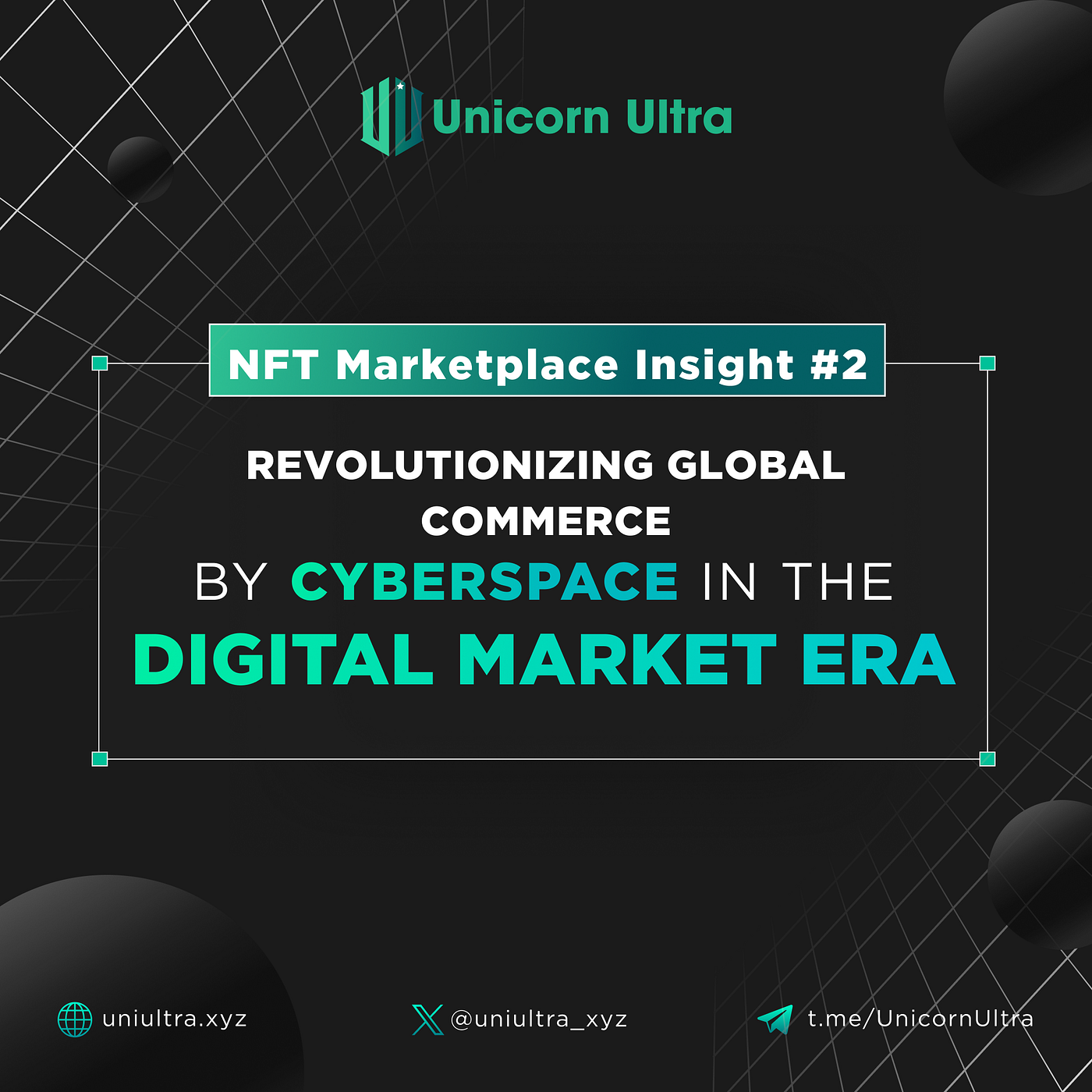
While the future of crypto NFTs and the global online economy looks promising, there are still challenges that need to be addressed. One of the main concerns is the environmental impact of blockchain technology, which powers most NFT transactions. As the demand for NFTs continues to grow, so does the energy consumption required for their creation and trading. Finding sustainable solutions, such as transitioning to more energy-efficient blockchains, will be crucial for the long-term viability of NFTs.
On the other hand, these challenges also present opportunities for innovation. Developers and technologists are already exploring alternative platforms and methodologies that prioritize sustainability and scalability without compromising the security and authenticity of NFTs.
The future of crypto NFTs and their impact on the global online economy is undoubtedly a fascinating topic. As the technology continues to evolve and mature, we can expect to see more exciting advancements and transformative changes. Whether it's empowering artists, integrating with emerging technologies, or addressing environmental concerns, the future of crypto NFTs holds immense potential for reshaping the global online economy.
What are NFTs and how do they work?
NFT stands for non-fungible token, which is a type of digital asset that represents ownership or proof of authenticity of a unique item or piece of content. NFTs are built using blockchain technology, which provides a decentralized and transparent way to verify ownership and track the history of transactions.
How are NFTs impacting the global online economy?
NFTs have the potential to have a significant impact on the global online economy. They open up new opportunities for creators and artists to monetize their digital works and engage with their audience directly, without relying on traditional intermediaries. NFTs also provide a new way for investors to participate in the digital market, as they can buy and sell unique digital assets with potential value appreciation.
What industries are most likely to be affected by the rise of NFTs?
The rise of NFTs is likely to affect various industries. The art industry, in particular, has seen a major impact, with artists selling their digital artworks as NFTs for significant sums of money. Other industries that may be affected include gaming, collectibles, music, sports, and virtual real estate. NFTs have the potential to disrupt traditional models and create new revenue streams within these industries.
What are some of the challenges that NFTs face in the global online economy?
NFTs face several challenges in the global online economy. One of the main challenges is the environmental impact of blockchain technology, which underpins NFTs. The energy consumption associated with blockchain transactions has raised concerns about sustainability and carbon footprints. Additionally, there are issues related to copyright infringement and fake NFTs, as anyone can mint an NFT of someone else's digital work without permission.
Are there any potential risks for investors in the NFT market?
Yes, there are potential risks for investors in the NFT market. The volatility of the market can lead to price fluctuations, and there is a risk of investing in NFTs that may lose value over time. There is also a risk of scams and fraudulent activities, as the NFT market is relatively new and less regulated compared to traditional financial markets. It is important for investors to do thorough research and exercise caution when participating in the NFT market.
Blur: NFT | Blur: NFT login | Blur: NFT connect | WalletConnect | Traders | What Is Blur Crypto
2022-2024 @ The potential impact of crypto nfts on the global online economy a detailed exploration